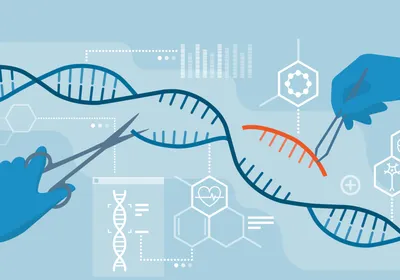 PIXABAY, ANALOGICUS
PIXABAY, ANALOGICUS
The US Department of Agriculture (USDA) will not regulate plants that have been modified through genome editing, according to statement released last week (March 28) by the agency.
In the announcement, the USDA states that it won’t oversee the use of genetically altered plants, as long as they could have also been developed through traditional breeding methods, such as cross-breeding or selecting for desirable properties. The agency adds that genome editing allows breeders to introduce new traits more precisely, and at a faster rate.
“With this approach, USDA seeks to allow innovation when there is no risk present,” US Secretary of Agriculture Sonny Perdue says in the statement. “Plant breeding innovation holds enormous promise for helping protect crops against drought and diseases while increasing nutritional ...





















